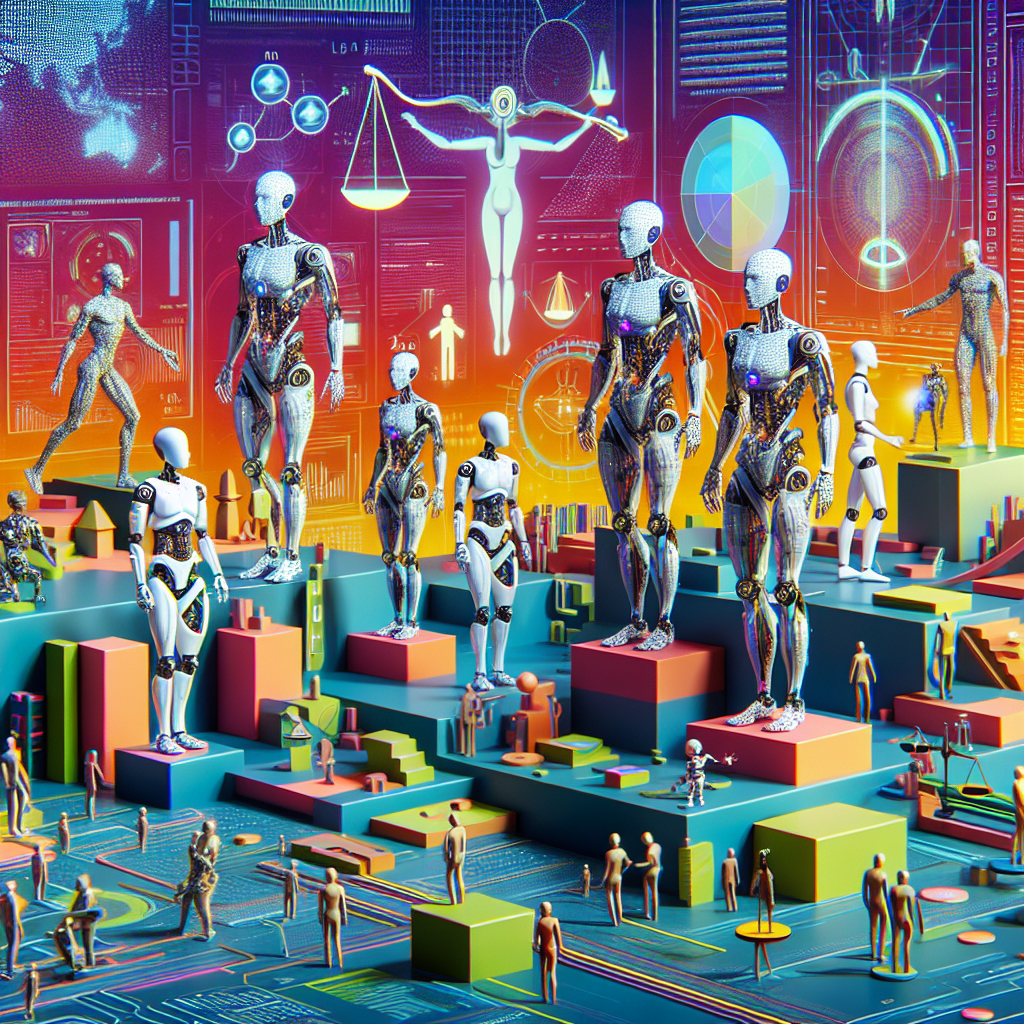Artificial General Intelligence (AGI) is a rapidly advancing field of technology that has the potential to revolutionize the way we live and work. AGI refers to machines that have the ability to perform any intellectual task that a human can do. This includes tasks such as problem-solving, reasoning, and even creative thinking. While the development of AGI holds great promise for improving our lives in countless ways, it also raises a number of ethical concerns that must be addressed.
In this article, we will explore the ethical implications of AGI and discuss some of the key issues that have been raised by experts in the field. We will also examine some of the potential risks associated with the development of AGI and consider how these risks can be mitigated. Finally, we will address some frequently asked questions about AGI and its ethical implications.
Ethical Concerns Surrounding AGI
One of the primary ethical concerns surrounding AGI is the potential for these machines to surpass human intelligence and become autonomous. This raises questions about the nature of consciousness, free will, and moral responsibility. If AGI systems are able to make decisions on their own, who should be held accountable for their actions? Should they be granted rights and protections similar to those of human beings?
Another ethical concern is the impact that AGI could have on the job market. As machines become increasingly capable of performing tasks that were once reserved for humans, there is a risk that millions of jobs could be lost. This could lead to widespread unemployment and economic inequality, as well as social unrest.
There are also concerns about the potential for AGI systems to be used for malicious purposes. For example, these machines could be programmed to carry out acts of terrorism or other forms of violence. They could also be used to manipulate public opinion or infringe on individuals’ privacy rights.
Finally, there are ethical questions surrounding the use of AGI in healthcare and other sensitive areas. For example, should these machines be allowed to make life-or-death decisions, such as who receives medical treatment and who does not? How should AGI systems be programmed to prioritize human well-being and minimize harm?
Mitigating the Risks of AGI
In order to address these ethical concerns and mitigate the risks associated with AGI, it is essential that developers and policymakers take a proactive approach to regulation and oversight. This includes implementing safeguards to ensure that AGI systems are designed and programmed in a way that aligns with ethical principles and values.
One approach to mitigating the risks of AGI is to develop frameworks for ethical decision-making that can be integrated into the design of these systems. For example, developers could incorporate principles of fairness, transparency, and accountability into the algorithms that govern AGI behavior. This could help to ensure that these machines make decisions that are in the best interests of society as a whole.
Another important step is to establish guidelines for the responsible use of AGI in various industries and applications. This could involve creating ethical codes of conduct for developers and users of AGI systems, as well as setting standards for data privacy and security. By establishing clear ethical guidelines, we can help to ensure that AGI is used in a way that benefits society while minimizing potential harms.
Frequently Asked Questions about AGI
Q: What is the difference between AGI and artificial intelligence (AI)?
A: AGI refers to machines that have the ability to perform any intellectual task that a human can do, while AI refers to machines that are capable of performing specific tasks or functions. AGI is often seen as a more advanced form of AI that can learn and adapt to new situations on its own.
Q: How close are we to achieving AGI?
A: While significant progress has been made in the field of AI, we are still a long way from achieving true AGI. Researchers continue to work on developing machines that are capable of generalizing from one task to another, but many technical challenges remain to be overcome.
Q: What are some of the potential benefits of AGI?
A: AGI has the potential to revolutionize fields such as healthcare, finance, and transportation. For example, AGI could help doctors diagnose and treat diseases more accurately, assist financial analysts in making better investment decisions, and improve the efficiency of transportation systems.
Q: How can we ensure that AGI is used ethically?
A: To ensure that AGI is used ethically, it is essential that developers, policymakers, and other stakeholders work together to establish clear guidelines and standards for the responsible use of these technologies. This includes implementing safeguards to protect privacy, ensure fairness, and prevent misuse of AGI systems.
In conclusion, the development of AGI holds great promise for improving our lives in countless ways, but it also raises a number of ethical concerns that must be addressed. By taking a proactive approach to regulation and oversight, we can help to ensure that AGI is used in a way that benefits society while minimizing potential risks. It is essential that developers, policymakers, and other stakeholders work together to establish clear guidelines and standards for the responsible use of these technologies. By doing so, we can help to ensure that AGI fulfills its potential as a force for good in the world.

